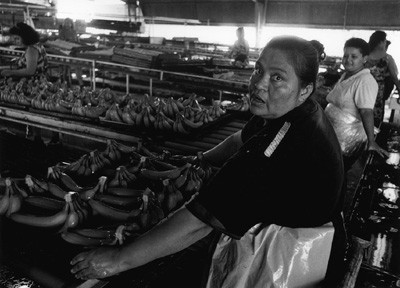Honduras' Charter Cities: Potential Economic Miracles or New 'Banana Enclaves'?
ANALYSIS

Honduras plans to form three 'charter cities' that will operate outside the nation's constitution as 'special economic zones' in a bid to promote foreign investment in a country with the world's highest murder rate and where over half the population lives below the poverty line.
The Honduran government signed an agreement this week with U.S. development firm MKG Group, which will begin laying down the initial infrastructure for the first city within six months.
"The future will remember this day as the day that Honduras began developing," MKG CEO Mark Strong said at the signing ceremony Tuesday.
The three proposed cities will have independent governments, legal systems, tax laws and police forces as determined by their charters, which could potentially be drawn out in agreement with other countries or corporations willing to invest in their development.
The concept of a charter city was first proposed by American economist Paul Romer, who theorized that developing countries could circumvent obstacles to building vibrant urban, economic centers by drawing in foreign investors through the establishment of separate laws and institutions that would appeal to them.
"Economists tend to assume that societies will naturally adopt good rules. If that were true, societies would put in place the rules needed... and well-run cities would indeed spring up," Romer said in a 2009 interview for the Freakonomics blog.
"The evidence suggests to the contrary that many societies are stuck with bad rules. Moving from bad rules to better ones may be much harder than most economists have allowed. The construct of a charter city is a suggestion about how we can change the dynamics of rules. It is a way to speed up the rate of improvement in the rules."
While Honduras will be the first country to try out Romer's model for charter cities, similar examples already exist.
Singapore and Hong Kong are perhaps the most famous prototypes of cities that were politically separated from their associated countries -- Malaysia and China respectively -- and became economic powerhouses by creating pro-business environments that attracted strong foreign investment.
The Honduran government hopes to recreate the success of these Asian metropolises, but it also faces the prospect of creating a starkly divided society, where these independent cities may be viewed as wealthy enclaves, which will undoubtedly require heavy security measures.
"We are going to see long, eternal queues like we see in Palestine [for people] to go to work in Israel, or queues just to move around," Honduran congressman Edmundo Orellana told the La Prensa newspaper.
Orellana also argued that the cities would allow multinational corporations to establish "protectorates" at the expense of the country's sovereignty and the rights of the Honduran people.
The congressman's characterization raises the specter of exploitation by corporations that Honduras experienced during the second half of the 20th century when two fruit conglomerates, Standard Fruit Company and United Fruit Company, established tax-exempt enclaves for their banana plantations and exploited cheap labor, while putting very little back into the Honduran economy.
The possibility that these charter cities could end up repeating this kind of exploitation is a very real concern for critics of the plan, while proponents maintain it will provide jobs and improve the standard of living for the Honduran people.
The details of how much wealth will go back into the Honduran economy remain murky, and will ultimately be determined by the agreements set forth in the cities' charters.
© Copyright IBTimes 2025. All rights reserved.





















